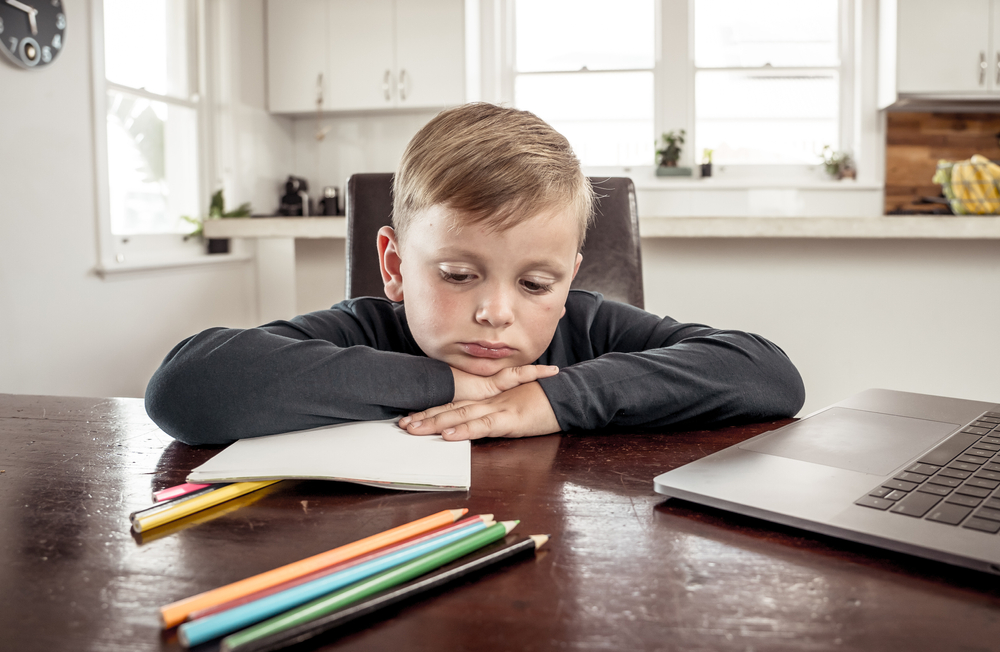Media release
From:
Research at a Glance
- A Melbourne-led literature review found a third of children and adolescents develop a mental health problem after a concussion, which could persist for several years post-injury
- The review involving almost 90,000 children across nine countries found up to 36.7 per cent experienced significantly high levels of internalising problems such as depression and post-traumatic stress and 20 per cent externalising problems such as aggression and attention problems
- Pre-existing mental health problems were a strong predictor of post-concussion mental health issues
- The researchers stated assessment, prevention and intervention of mental health difficulties after concussion should be integrated into standard concussion management
A third of children and adolescents develop a mental health problem after a concussion, which could persist for several years post-injury, according to a new literature review.
The research, led by the Murdoch Children’s Research Institute (MCRI) and published in the British Journal of Sports Medicine, found mental health should be evaluated as part of standard pediatric concussion assessment and management.
MCRI researcher and Monash University PhD candidate Alice Gornall said despite many post-concussion and mental health symptoms overlapping, the relationship between delayed recovery and mental health had remained poorly understood until this literature review.
The review of 69 articles published between 1980 to June 2020, involved almost 90,000 children, aged 0-18 years, from nine countries including Australia, US, Canada and New Zealand, who had a concussion. Falls (42.3 per cent) and sporting injuries (29.5 per cent) were the most common cause of injury, followed by car accidents (15.5 per cent).
It found up to 36.7 per cent experienced significantly high levels of internalising problems such as withdrawing, anxiety, depression and post-traumatic stress and 20 per cent externalising problems such as aggression, attention problems and hyperactivity after concussion compared with healthy children or children who sustained other injuries such as an arm fracture.
Pre-existing mental health problems were a strong predictor of post-concussion mental health issues. The review stated 29 per cent of children with a pre-injury mental health diagnoses received a new mental health diagnosis post-concussion. Up to 26 per cent without prior mental health problems went onto develop symptoms.
Ms Gornall said while significant improvements in mental health emerged between three and six months post-injury, a minority of children experienced persisting symptoms for several years afterwards.
The findings come after a recent study, led by MCRI and published in The Journal of Head Trauma Rehabilitation, found having a traumatic brain injury in early childhood was associated with lower IQ scores that persist up to seven years post-injury.
Ms Gornall said concussion was a growing public health concern with a third of children experiencing a head injury before 13 years of age.
“Despite the high incidence of concussion among children and adolescents, identifying those at risk of ongoing difficulties after concussion remains a prominent challenge for clinicians,” she said.
“On top of this, children take twice as long to recover from concussion than adults, with one in four children experiencing symptoms beyond one-month post-injury.”
Emma, 17, has been seeking mental health support after suffering two concussions, a year apart.
In 2019 while playing netball she knocked her head on a goal post and last March she was hit with a ball in the back of the head.
Emma said after the second concussion she developed anxiety, headaches, a sense of hopelessness and had trouble concentrating.
“After my last concussion I found it very hard to be motivated for school and everyday life. Doing the simplest of tasks such as a walk was difficult for me, not being able to complete these tasks got me quite disheartened which impacted on my mental health,” she said.
Emma’s dad Bruce Henry said he welcomed the push for mental health to be part of paediatric concussion assessment and management as many cases would be going untreated.
“When a child has a concussion they might look fine but you can’t see the underlying impact,” he said. It’s so important for mental health to form part of concussion management, which has been essential to Emma’s recovery process.”
MCRI researchers are also trialling an intervention, Concussion Essentials, to prevent children suffering long term post-concussion symptoms.
The eight session intervention combines physiotherapy and psychology treatments that target presenting symptoms with education around common concerns such as headache, fatigue and return to exercise, school and sports. Early data shows that the intervention is effective in accelerating recovery.
MCRI Professor Vicki Anderson said assessment, prevention and intervention of mental health difficulties after concussion should be integrated into standard concussion management.
“Mental health is central to concussion recovery. Concussion may both precipitate and exacerbate mental health difficulties, impacting delayed recovery and psychosocial outcomes,” she said.
“Incorporating mental health risk into post-injury management represents an opportunity to engage children and adolescents with mental health services to either prevent unnecessary problems emerging or to treat already existing issues.”
Developed by world-leading concussion experts at MCRI and The Royal Children’s Hospital and in collaboration with the AFL, the HeadCheck app also helps parents, coaches and first aiders to recognise the signs of concussion and manage the child's safe return to school, play and organised sport.
For more information visit www.headcheck.com.au or download the app from the Apple Store.
Researchers from Monash University, the University of Melbourne and The Royal Children’s Hospital also contributed to the study.
Publication: Alice Gornall, Michael Takagi, Thilanka Morawakage, Xiaomin Liu and Vicki Anderson. ‘Mental Health After Pediatric Concussion: A Systematic Review & Meta-Analysis,’ British Journal of Sports Medicine. DOI: 10.1136/bjsports-2020-103548
Available for interview:
Alice Gornall, MCRI researcher
Professor Vicki Anderson, MCRI Theme Director, Clinical Sciences
Bruce Henry, who daughter Emma has been seeking mental health support after suffering two concussions



 Australia; VIC
Australia; VIC


